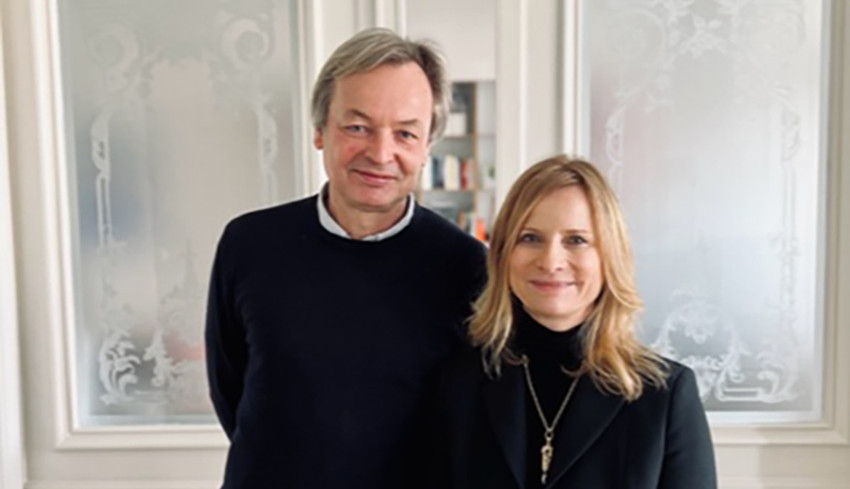Biontech leaves; what does Germany do?
BioNTech, which has become the superstar of mRNA research with its corona vaccines, wants to cause a sensation in the UK and develop personalised mRNA cancer immunotherapies and new vaccines there. In addition to 70 highly qualified scientists moving to the island, a regional headquarters will be established in London – with such central departments as Regulatory Affairs, Medical Affairs, Intellectual Property and Legal.
Systematic move
It all sounds like systematic planning for the next big thing. Except, of course, that it will be British. And what happens here? A bit of whistling in the woods that BioNTech is by no means turning its back on Germany. According to experts, the Mainz-based company is moving to Great Britain because of the prohibitive and increasing bureaucracy, lack of skilled workers and slow processes in Germany (see p. 18).
Otherwise: isolated complaints about dwindling competitiveness that usual appeals to politicians. This is nothing new, and much has already been done. Is not Rhineland-Palatinate a prime example of good biotech support? For an innovation climate in which science and industry, university research, start-ups and pharmaceutical companies cooperate for the benefit of all? And yet, Mainz’s flagship company chose the British. Someone must have put even better cards on the table or made the appropriate framework conditions possible. As Biontech co-founder Prof. Dr Özlem Türeci said diplomatically,
“BioNTech relies on the strengths of the respective countries for research and development.”
Strength and weaknesses
Touchez! But what exactly are the German and European non-strengths or weaknesses? Clinical research and development for cell and gene therapies are now almost exclusively in the USA and Asia. Are other areas now migrating? The lament about more difficult data situations, regulatory freedoms, and risk averse investors in Germany is as understandable as it is well known. Of course, all of this needs to be analysed, addressed, and directed into the proper channels with the necessary pressure.
And preferably at Germany’s pace, i.e. subito, as Chancellor Olaf Scholz just demanded during a BioNTech visit. What is possible for LNG terminals must also apply to research, he said. “We must make faster approval procedures possible for factories, new medicines, research projects and the use of research data,” he said. He added that the German government “now wants to help the medical industry and healthcare industry make progress in a very short time with many very concrete legislative projects.” So far, so hopeful. But all this threatens to come to nothing if something fundamental is lacking: The industry’s self-confidence, the broad chest that can only be shown by those who fundamentally believe in themselves and the opportunities for Germany as a business location.
Ugur Sahin and Özlem Türeci have been elevated to exceptional researchers, celebrated, admired and highly respected for their success in the historic situation of the Covid-19 pandemic. Self-starters, so to speak. But are there not many Sahins and Türecis in laboratories in this country? World-class scientists, passionate doers, highly idealistic physicians? We hear too little about them; instead, it seems the industry is labouring under a strange kind of despondency. Pharmaceuticals do not have a good reputation; distrust rustles through every package insert.
So it is better to keep a low profile and not appear too wide-eyed? The crux of the matter is that anyone who behaves this way finds it challenging to generate the economic and political support they so urgently need. Politicians, in particular, are prone to opportunistic reflexes. Why go out on a limb for a cause that cannot win a pot of gold in the public eye?
The ball is already in the court of the industry itself. It must find itself, become louder, more offensive. It must make clear to the public what an immense contribution it can make to the well-being of people – if only it is allowed to. If the industry doesn’t like political developments that lead to anti-innovative conditions, it must engage in public discussion and amend public perception.
The true lesson of the pandemic
This is another lesson from the Covid-19 pandemic: research and science must face the challenges the media poses. They must explain, they must advertise, and they must speak the language of the people. And they must not shy away from addressing their doubts, uncertainties and conflicts. This is the only way they can prove their relevance and credibility. On the other hand, what is not possible is to keep one’s feet still. No, when one superstar leaves, the others must run all the more.
This article was originally published in European Biotechnology Magazine Spring Edition 2023.




